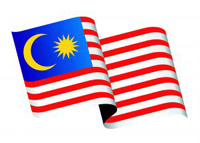The healthcare system in Malaysia is known to be of a high standard. In fact, the country is a major medical tourism destination that attracts many foreigners in need of high quality, yet affordable treatments. The healthcare system is aimed at providing care to everyone within the country, however access to such medical care may be difficult in rural areas and remote regions of the country.
Medical facilities
Malaysia offers both public and private healthcare. Both provide excellent services, have trained staff and employ modern techniques.Many doctors and medical staff in Malaysia’s hospitals and clinics have trained overseas and are fluent in English. In the field of medical tourism, the country is especially known for its expertise in areas such as ophthalmology, gastroenterology, cardiology, dentistry and general surgery. Doctors, other specialists and dentists are easy to visit and consultation fees are very affordable. Even though healthcare in Malaysia is much cheaper in comparison to many western countries, it is advisable for expats to acquire comprehensive health insurance. Those who pay contributions to the Employees Provident Fund automatically receive coverage for all necessary treatment and rehabilitation care in public hospitals. Although expats can receive treatments at government hospitals, many prefer to use private facilities. Therefore expats can benefit from buying a supplementary health coverage plan from a reputed insurance provider as this allows them access to medical care in private hospitals as well.
Hospitals
There are public and private hospitals in Malaysia. Citizens can avail of highly subsidized medical treatment at public hospitals due to the country’s healthcare program. Expats have access to public hospitals only if they receive it as a benefit as part of their employment package. Although public hospitals provide high quality and inexpensive medical care, there may long waiting periods at times, especially for certain procedures. There may also be the problem of shortages, which arises because of the country’s large population. Private hospitals are mainly used by those who choose to buy private health insurance. Private care is useful in case there is a need for urgent consultation or treatment. These facilities are not government funded and hence work on a profit basis. Therefore expats may sometimes find they are being asked to take a long list of unnecessary tests and medications. While not all private hospitals do this, it’s best to be aware of the practice.
Doctors
Consultations, visits for minor ailments or general health check-ups can be done at public or private hospitals even without international health insurance. Usually appointments are not required. People simply enter their names on the waiting list and wait to be called. These visits are not too expensive, but the charges for tests or medications can add up. Many facilities have a practice of requesting for cash payments after the treatment. The receipt can then be given to the health insurance provider.
Prescriptions
Most prescription and over-the-counter drugs that are available in western or European counties are also available in Malaysia. Many of them may also be covered under expat health insurance. Pharmacies in Malaysia tend to follow strict rules about selling regulated drugs and ask for prescriptions even in case of drugs that are usually available over-the-counter. While prescription-grade medications can only be bought at pharmacies, other common medications are available in corner shops and supermarkets.
Health hazards
Smoke haze is a common problem in Malaysia due to high pollution levels. It reaches a peak between the months of June to October and the government regular issues health warnings about the condition. Expats prone to respiratory ailments should check the local news for such warnings and follow the advice given by the health authorities. Malaysia also witnesses bouts of dengue fever even in urban areas and cities. The risk increases during the monsoons and its best to protect against mosquito bites during these periods.
Emergencies
The number to call in case of emergencies is 999 in Malaysia. If calling from a mobile phone, the number is 112. Ambulance squads that include government-sponsored teams and university hospital teams handle emergency requests. In some cases, since the funding for such teams is low, the response time may not very quick. Private ambulance services in Malaysia are known to provide quick and efficient emergency care.


